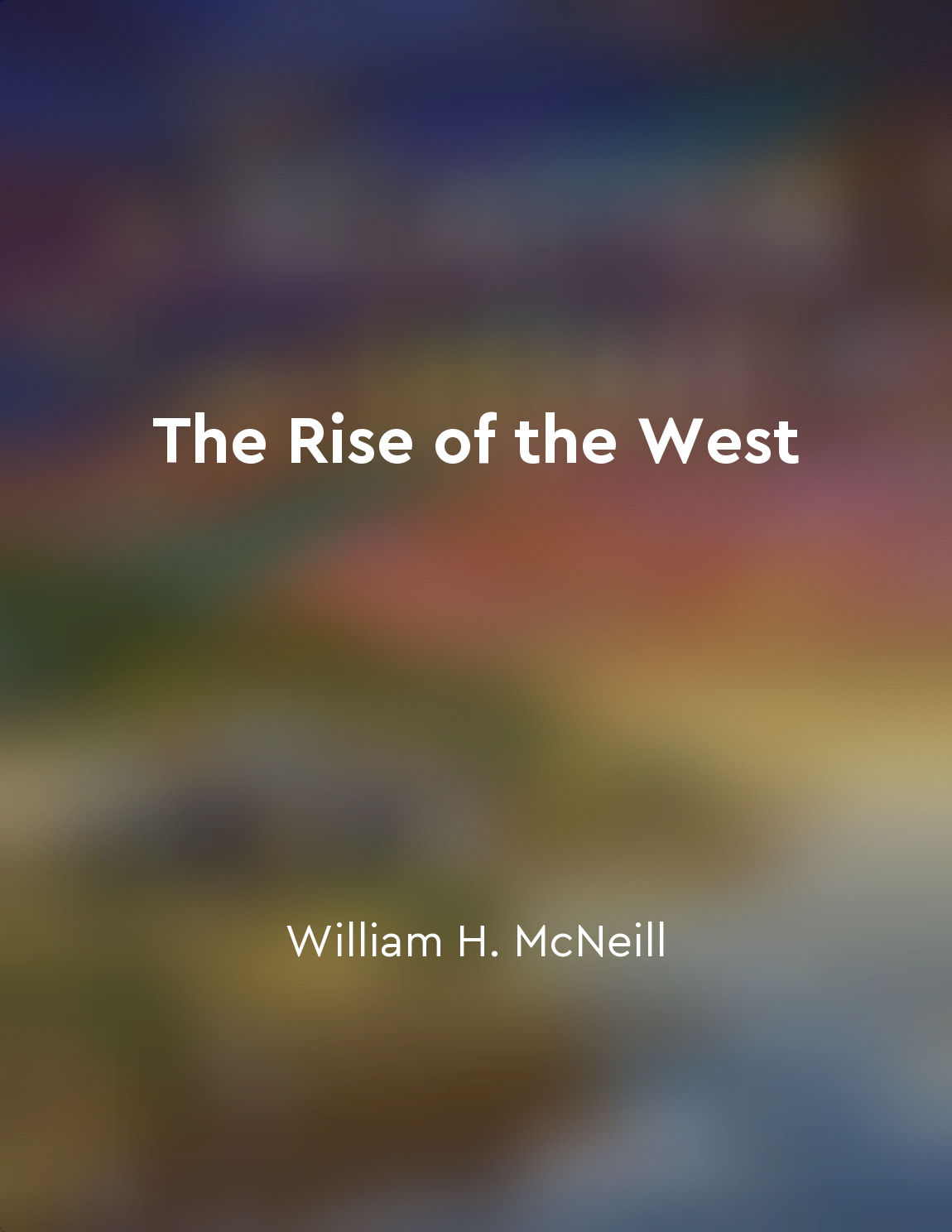Environmental factors shape civilizations from "summary" of The Rise of the West by William H. McNeill
The physical environment exerts a powerful influence on the development of human societies. Climate, geography, and resources all play a role in shaping the way civilizations evolve. In some cases, environmental factors can act as a constraint, limiting the options available to a society. For example, the harsh conditions of the Arctic made it difficult for indigenous peoples to develop complex civilizations. On the other hand, a favorable environment can provide the conditions for rapid growth and advancement. The fertile soil of Mesopotamia allowed the Sumerians to develop agriculture and build the world's first cities. Similarly, the abundant natural resources of the Americas enabled the Inca and Aztec civilizations to flourish. In addition to physical factors, the availability of trade routes and communication networks can also influence the development of civilizations. The Silk Road, for example, connected East and West, allowing for the exchange of goods, ideas, and technologies. This facilitated the spread of innovations such as papermaking and gunpowder. Furthermore, environmental factors can shape the social and political structures of a civilization. In societies where resources are scarce, competition for land and water can lead to conflict and the rise of powerful states. In contrast, societies with plentiful resources may be more egalitarian and decentralized.- The relationship between civilizations and their environments is complex and multifaceted. While humans have the ability to adapt and overcome many challenges, they are ultimately shaped by the physical world in which they live. By understanding the role of environmental factors in the development of civilizations, we can gain insight into the forces that have shaped our own history and culture.


